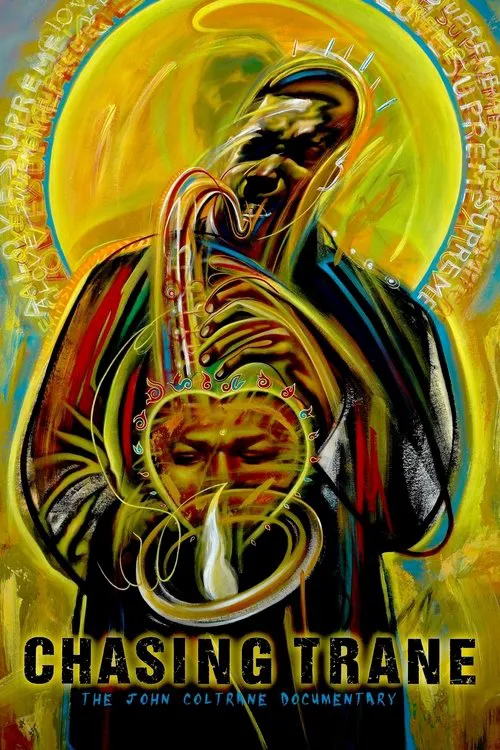Chasing Trane

Plot
Chasing Trane, directed by John Scheinfeld, is a biographical documentary that embarks on an epic journey to explore the life of the inimitable jazz saxophonist John Coltrane. Released in 2016, the film pays tribute to the musical genius of Coltrane, delving into his turbulent life, musical evolution, and the lasting impact of his artistry on the world. The documentary commences with a montage of archival footage, setting the tone for an intimate, personal exploration of Coltrane's life. Through a series of interviews with family members, friends, music colleagues, and experts, the film weaves together a rich tapestry of stories, anecdotes, and reflections that reveal the complexities of Coltrane's character. His childhood in Hampton, Virginia, is portrayed as a pivotal period in his early life, where his musical talents began to flourish under the guidance of his grandmother. As a teenager, Coltrane moved to Philadelphia, where he formed his first band and began to develop his unique style. His early musical endeavors were largely influenced by the bebop movement, led by the likes of Charlie Parker and Dizzy Gillespie. However, it was his time with the Miles Davis Quintet that truly transformed Coltrane's artistry. Davis's improvisational approach and the avant-garde atmosphere of the group inspired Coltrane to push the boundaries of jazz even further. In the late 1950s and early 1960s, Coltrane embarked on a remarkable journey of musical experimentation, exploring the realms of free jazz and modal music. His work during this period, particularly with the album "My Favorite Things," marked a significant departure from traditional jazz conventions. The documentary showcases clips from "Giant Steps," "Cedar Walton," and "My Favorite Things," which demonstrate Coltrane's innovative approach to jazz, showcasing his mastery of the saxophone and his capacity to evoke profound emotions through his music. Throughout the film, John Scheinfeld skillfully interweaves Coltrane's personal struggles, including his intense spiritual journey, his tumultuous relationships, and his battle with addiction. These aspects of his life not only humanized Coltrane but also underscored the profound impact of his music on those who knew him. Coltrane's conversion to Christianity in the early 1960s marked a pivotal moment in his life. His exploration of African and Eastern spiritualities, as well as his interest in mysticism, led him to compose iconic pieces such as "A Love Supreme," often regarded as a spiritual jazz masterpiece. This transformation had a profound effect on his music, imbuing it with a sense of urgency, spirituality, and timelessness. The documentary also explores the profound influence Coltrane had on subsequent generations of musicians. Many renowned artists, including Miles Davis, Sonny Rollins, and Herbie Hancock, speak about the transformative impact of Coltrane's music on their own careers. This testament to his enduring legacy underscores the profound and lasting effects of Coltrane's music. The final sections of the documentary focus on Coltrane's untimely death in 1967, at the age of 40, and its profound impact on those who knew him. The film culminates in a poignant tribute to Coltrane's memory, as his music continues to enchant, inspire, and transform audiences all over the world. Through "Chasing Trane," John Scheinfeld has created a masterpiece of cinematic storytelling that not only illuminates the complexities of Coltrane's life but also reaffirms the transcendent power of music to touch the human heart.
Reviews
Recommendations




